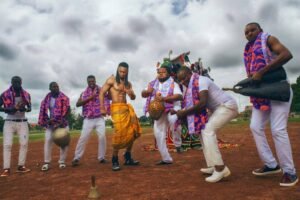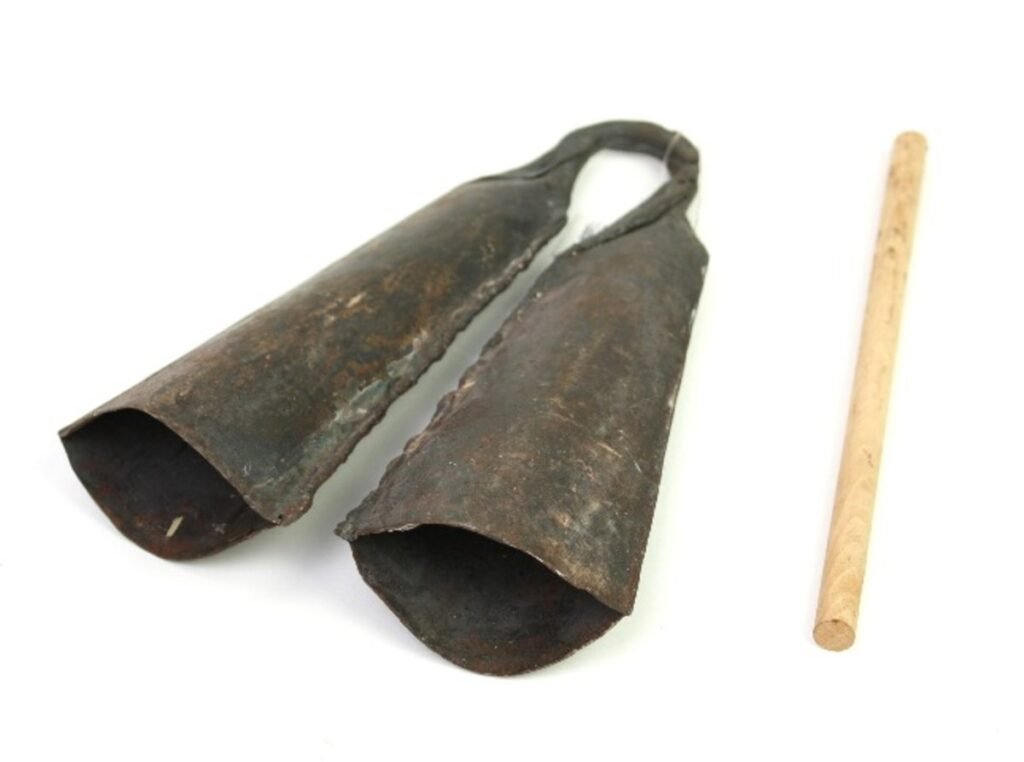Nigerians took to the street in peaceful protest in the past few days in #ENDSARS campaign which showed the people’s lifestyle with the ‘Ogene’ traditional instrument playing an important role in the Enugu protest.
While the protest was marred by Police brutality in some parts of the country, the Enugu protest which was led by artists such as Phyno, Flavour, Kcee, and Zoro, was a peaceful one which allowed the people to display their culture once again.
Ogene Traditional Instrument of Igbo People
The Ogene instrument is the traditional gong of the Igbo people. It is a metal bell historically made by the Igbo people of Southeast Nigeria, with its origin traced to Achi in Enugu State and Awka in Anambra State.
The Ogene type of bell which is commonly used as a “master instrument” in a bell orchestra in the Omambala River basin of the Igboland. It is an instrument of the struck idiophone class and is made of iron by specialist blacksmiths.
The bell has a flattish, conical shape, and is hollow inside. The sound itself comes from the vibration of the iron body when struck, which is made to resound by the hollow inside of the bell. The iron body is usually struck with a soft wooden stick.
Functions of Ogene Gong
The earliest function of the ‘Ogene‘ gong is to pass information from the ‘Eze’ (King) to the people via the town crier in Igboland.
It has also been used in the people’s music which is termed ‘Ogene music’. The gong is an important part of this traditional genre of music where the sound made by the bell gives melody and is referred to as a talking instrument.
Ogene In Popular Culture
Even though the younger generations of Nigerians are familiar with western instruments such as guitar, saxophone, piano, and the rest, Ogene,is still in use by the Igbo people and has been infused into western music.

Igbo music artists such as Zoro, Flavour, Kcee, Zoro, and so on have infused the traditional Ogene music into modern music.
It is a day-to-day instrument for Igbo traditionalists as they hit the gong with sticks and enjoy the rhythm in their local language.
Do share your thought on this post in the comment section.

